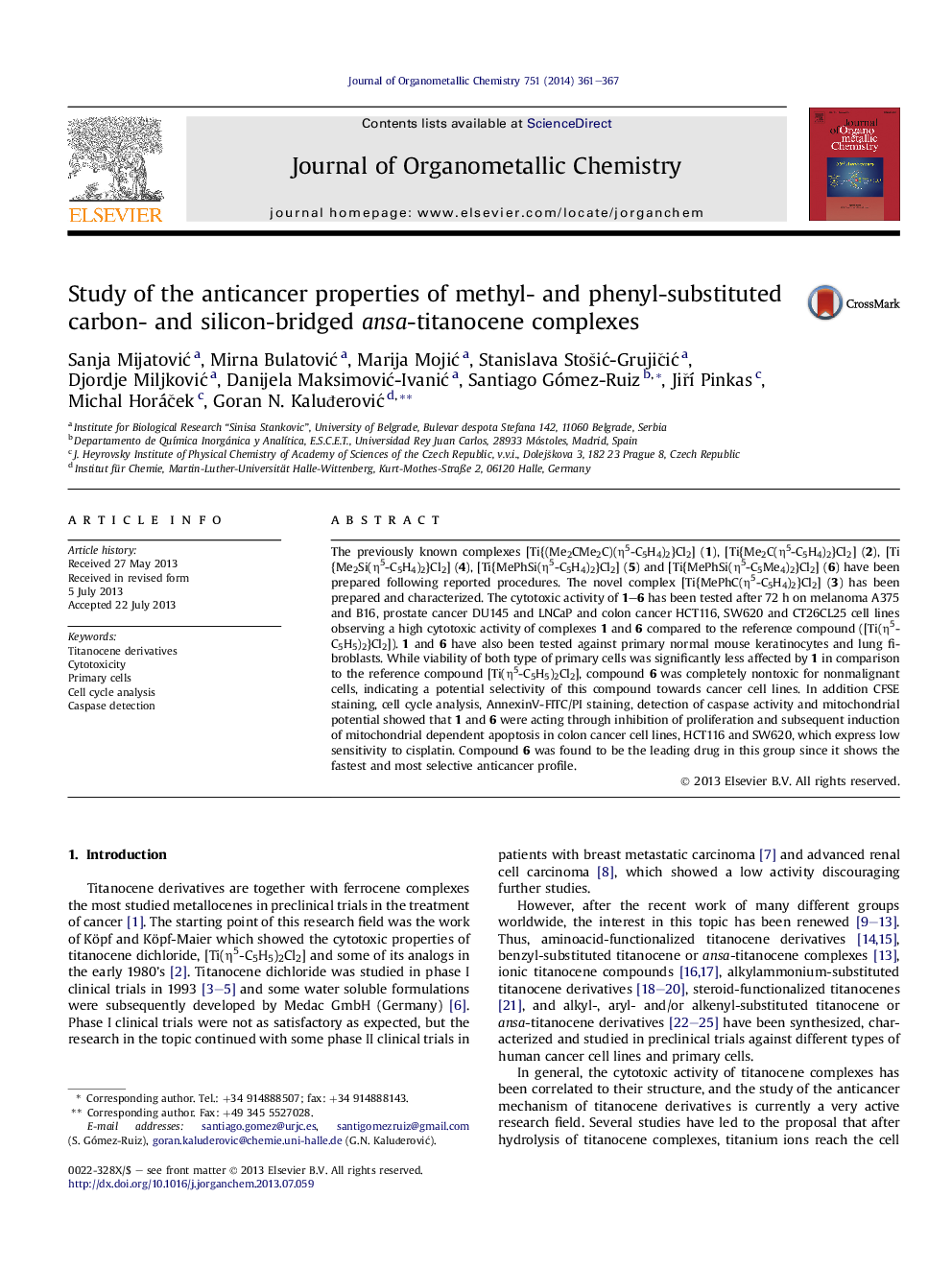| Article ID | Journal | Published Year | Pages | File Type |
|---|---|---|---|---|
| 1324288 | Journal of Organometallic Chemistry | 2014 | 7 Pages |
•C- and Si-bridged ansa-titanocene complexes have been synthesized.•Synthesized titanocene derivatives are cytotoxic against cancer cell lines.•Mechanism of action shows induction of mitochondrial dependent apoptosis.•[Ti{MePhSi(η5-C5Me4)2}Cl2] shows the most selective anticancer profile.•[Ti{MePhSi(η5-C5Me4)2}Cl2] is nontoxic for primary cells.
The previously known complexes [Ti{(Me2CMe2C)(η5-C5H4)2}Cl2] (1), [Ti{Me2C(η5-C5H4)2}Cl2] (2), [Ti{Me2Si(η5-C5H4)2}Cl2] (4), [Ti{MePhSi(η5-C5H4)2}Cl2] (5) and [Ti{MePhSi(η5-C5Me4)2}Cl2] (6) have been prepared following reported procedures. The novel complex [Ti{MePhC(η5-C5H4)2}Cl2] (3) has been prepared and characterized. The cytotoxic activity of 1–6 has been tested after 72 h on melanoma A375 and B16, prostate cancer DU145 and LNCaP and colon cancer HCT116, SW620 and CT26CL25 cell lines observing a high cytotoxic activity of complexes 1 and 6 compared to the reference compound ([Ti(η5-C5H5)2}Cl2]). 1 and 6 have also been tested against primary normal mouse keratinocytes and lung fibroblasts. While viability of both type of primary cells was significantly less affected by 1 in comparison to the reference compound [Ti(η5-C5H5)2Cl2], compound 6 was completely nontoxic for nonmalignant cells, indicating a potential selectivity of this compound towards cancer cell lines. In addition CFSE staining, cell cycle analysis, AnnexinV-FITC/PI staining, detection of caspase activity and mitochondrial potential showed that 1 and 6 were acting through inhibition of proliferation and subsequent induction of mitochondrial dependent apoptosis in colon cancer cell lines, HCT116 and SW620, which express low sensitivity to cisplatin. Compound 6 was found to be the leading drug in this group since it shows the fastest and most selective anticancer profile.
Graphical abstractCarbon- and silicon-bridged ansa-titanocene complexes were synthesized and tested on a wide variety of cancer cell lines and primary normal mouse keratinocytes and lung fibroblasts. Titanocene compounds triggered blockage in division in cisplatin-resistant HCT116 and SW620 cells and underwent to mitochondrial form of apoptotic cell death.Figure optionsDownload full-size imageDownload as PowerPoint slide
